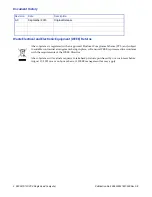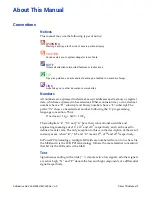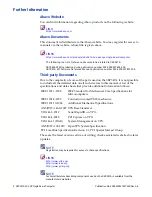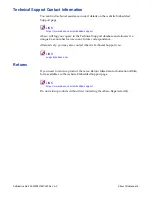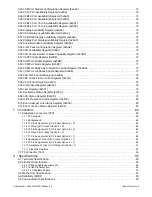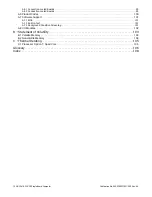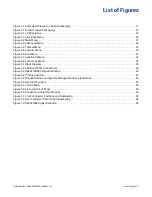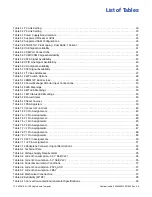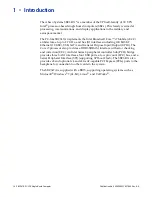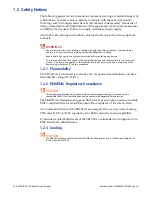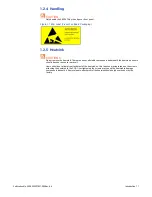
Publication No. 500-9300527837-000 Rev. A.0
About This Manual 3
About This Manual
Conventions
Notices
This manual may use the following types of notice:
WARNING
Warnings alert you to the risk of severe personal injury.
CAUTION
Cautions alert you to system danger or loss of data.
NOTE
Notes call attention to important features or instructions.
TIP
Tips give guidance on procedures that may be tackled in a number of ways.
LINK
Links take you to other documents or websites.
Numbers
All numbers are expressed in decimal, except addresses and memory or register
data, which are expressed in hexadecimal. Where confusion may occur, decimal
numbers have a “D” subscript and binary numbers have a “b” subscript. The
prefix “0x” shows a hexadecimal number, following the ‘C’ programming
language convention. Thus:
One dozen = 12
D
= 0x0C = 1100
b
The multipliers “k”, “M” and “G” have their conventional scientific and
engineering meanings of x10
3
, x10
6
and x10
9
, respectively, and can be used to
define a transfer rate. The only exception to this is in the description of the size of
memory areas, when “K”, “M” and “G” mean x2
10
, x2
20
and x2
30
respectively.
In PowerPC terminology, multiple bit fields are numbered from 0 to n where 0 is
the MSB and n is the LSB. PCI terminology follows the more familiar convention
that bit 0 is the LSB and n is the MSB.
Text
Signal names ending with a tilde (“~”) denote active low signals; all other signals
are active high. “N” and “P” denote the low and high components of a differential
signal respectively.


